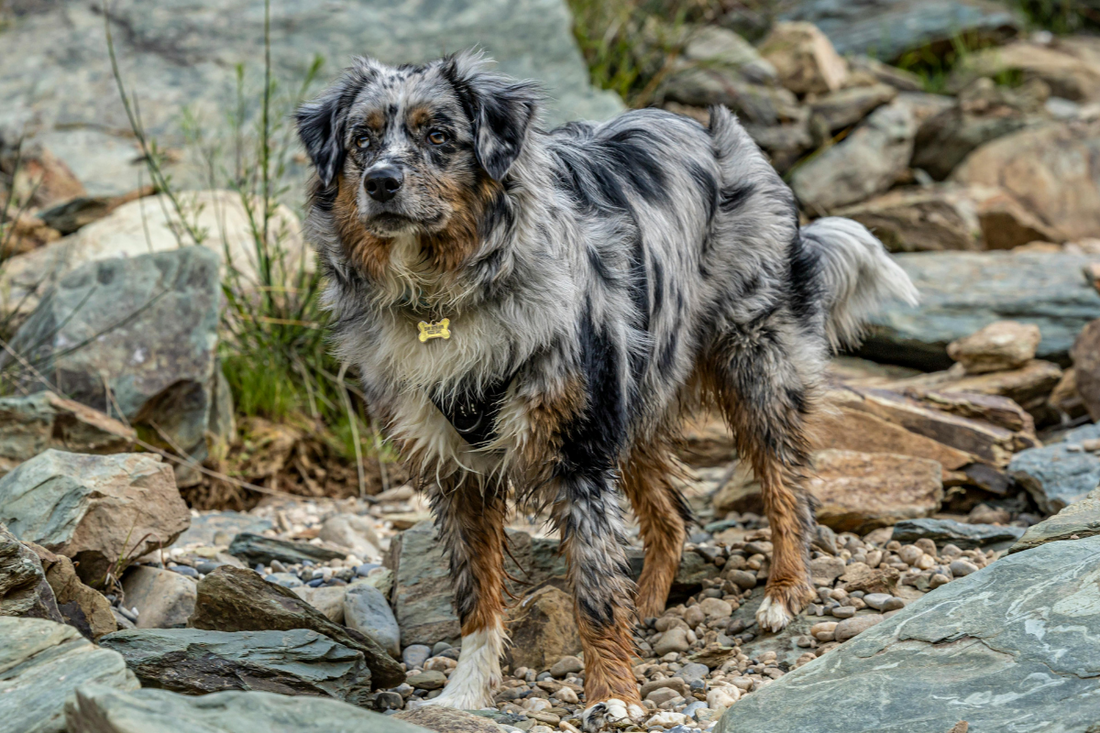
Adventure Dogs 101: Choosing the Best Breed for Hiking Lifestyles
Share
If you're dreaming about adding a new adventure buddy to your life, it's smart to choose a dog that matches your trail goals.
Some breeds are naturally better suited for rugged outdoor adventures — but no two dogs are the same! Let’s explore what makes a great hiking dog, and which breeds might be your perfect match.
What Makes a Dog Great for Hiking?
Before we get into specific breeds, here’s what makes an ideal trail partner:
- Endurance: Dogs that can handle miles of trekking without wearing out quickly.
- Agility: Ability to navigate rocky, uneven, or tricky terrain safely.
- Weather Resilience: Either a thick coat for cold or good heat tolerance for warmer hikes.
- Trainability: Good recall, leash manners, and responsiveness are critical on trails.
- Temperament: Calmness around other hikers, wildlife, and new environments.
A Quick Note on Individual Differences
While certain breeds often have traits that lend themselves to outdoor adventures, every dog is an individual.
Energy levels, endurance, health, and personality can vary significantly even within a breed. When choosing your adventure buddy, focus on the individual dog — not just their breed reputation.
Top Dog Breeds for Hiking Adventures
1. Australian Shepherd
These lively, intelligent dogs thrive when they have a job — and hiking fits the bill. Australian Shepherds have the stamina for long adventures and the agility to handle challenging trails.
Trail Tip: Aussies love carrying their own gear! A lightweight dog backpack keeps them engaged and helpful.
2. Labrador Retriever
Labs are adventurous, adaptable, and hearty enough for various climates and terrains. Whether you're crossing rivers, trudging through mud, or hiking mountain paths, a Lab is up for the challenge (and probably some extra muddy puddles too).
Trail Tip: Keep fresh towels handy — Labs are natural swimmers and splashers!

3. Siberian Husky
Born for endurance, Huskies can cover incredible distances — but they thrive best in cooler temperatures. Their independent spirit means they’ll need strong recall training, but their energy and resilience are unmatched for long-distance treks.
Trail Tip: Practice leash skills early; Huskies have a strong prey drive and adventurous spirits.

4. Border Collie
If you can keep up, a Border Collie will gladly go the distance (and then some). Highly intelligent and hyper-athletic, Border Collies make incredible companions for rugged, technical trails — but they need mental stimulation just as much as physical exercise.
Trail Tip: Build trail games and “tasks” into your hikes to keep their minds engaged.

5. Bernese Mountain Dog
These sturdy, sweet-natured dogs were bred for work in the Swiss Alps. Their calm demeanor, strength, and love of cool weather make them perfect for moderate hikes in chillier climates.
However, it’s important to consider their relatively short lifespan and susceptibility to joint issues like hip and elbow dysplasia. Berners are best for more leisurely or moderate hikers who prioritize quality time over strenuous, high-mileage trips.
Trail Tip: Stick to moderate trails, especially as they age, and avoid overheating in warmer weather.

6. Rhodesian Ridgeback
Originally bred for endurance in African climates, Ridgebacks are agile, muscular, and tough. They excel in warm-weather hiking and love wide-open spaces.
Trail Tip: Early socialization and consistent training are key to managing their independent streak.

Honorable Mentions
- Vizslas: Lean, speedy, and incredibly affectionate — built for long runs and hikes.
- German Shorthaired Pointers: Bundles of energy and endurance perfect for active lifestyles.
- Catahoula Leopard Dogs: Strong, agile, and fearless on rugged backcountry trails.
- Rescue Mutts: Mixed-breed dogs often combine the best traits for outdoor life — never overlook a spirited shelter pup!

Important Age Considerations for Hiking Dogs
It’s tempting to hit the trail with a wiggly puppy, but young dogs shouldn’t hike strenuously until their growth plates close — usually between 12 and 18 months, depending on their size and breed.
Too much impact too early can lead to long-term orthopedic problems. During the puppy phase, stick to easy strolls on soft ground, focus on basic training, and patiently build their fitness over time.
When in doubt, your veterinarian can guide you on when your pup is ready for more serious adventures.
Thinking About Adoption?
Adopt, don’t shop!
Many shelters and rescue groups have active, outdoorsy dogs who would thrive on the trail. Shelter staff can help match you with a dog whose energy and temperament fit your hiking dreams.
You might just find your ultimate trail partner waiting for you!
Gearing Up for Your New Trail Buddy
Once you’ve found your perfect canine companion, make sure you’re equipped for safe, comfortable adventures:
- A secure, escape-proof harness
- Collapsible water bowls and plenty of hydration
- Paw protection gear for rough surfaces (read our guide to year-round paw care here)
- Canine first aid kit for emergencies (learn how to build your DIY kit here)
- High-quality trail treats for motivation and reward. (try making your own with our DIY trail mix recipes)
Being well-prepared ensures that every adventure is safe and joyful for both you and your pup.
Ready to Hit the Trails?
No matter which dog you choose, patience, care, and shared experiences will turn any pup into the perfect hiking partner.
Take your time finding the right match, build your bond, and get ready to make unforgettable trail memories together.
We’d love to hear from you!
Who’s your dream adventure dog? Share your trail stories in the comments below or tag us in your hiking pics @PetTrailEssentials! 📸✨
And for more tips, gear guides, and trail inspiration, explore the rest of the PetTrail Essentials Blog!
